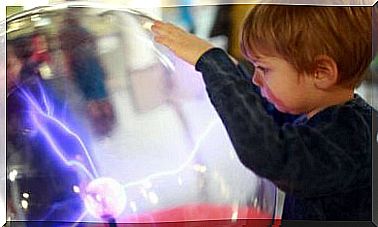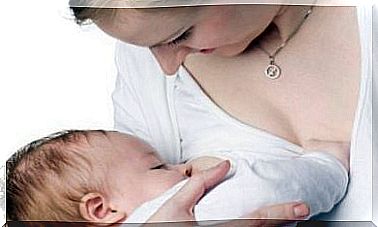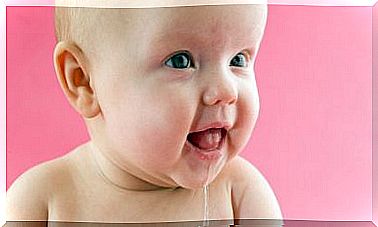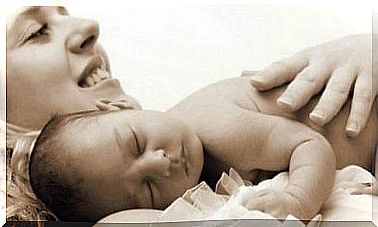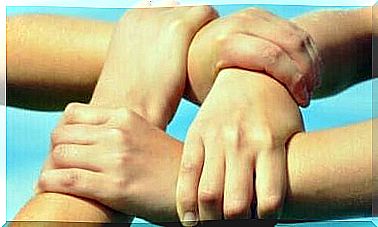Constipation During Pregnancy: All About This
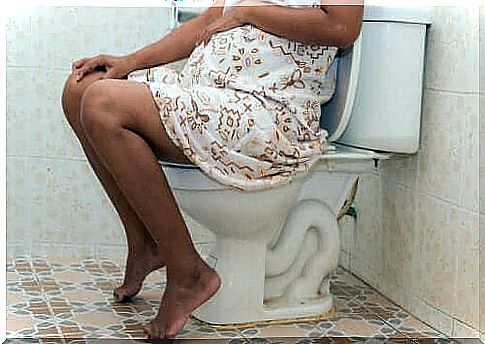
Constipation during pregnancy is a common disorder that affects many women. In fact, it is estimated that about 50% of all expectant mothers suffer from it. It should not come as a surprise as the woman’s body undergoes a large number of changes during the nine months. With these changes also come certain digestive problems.
Everyone knows that many women suffer from dizziness and morning sickness in the first trimester of their pregnancy. And in the same way, it is not uncommon for expectant mothers to experience indigestion, flatulence and even constipation during pregnancy. It is constipation when a woman defecates less than three times a week.
How does constipation occur during pregnancy?
When the pregnancy period begins, a number of changes occur in the woman’s body, which affect the whole body. One of these is the increase in the secretion of progesterone, which is a fundamental pregnancy hormone.
Initially, progesterone is responsible for preparing the uterus to house the fetus. At the same time, it promotes the elasticity of the tissue, prevents uterine cramps and protects the fetus by shaping the mucus plug. However, progesterone is also to blame for slowing down the digestive process and intestinal transit.
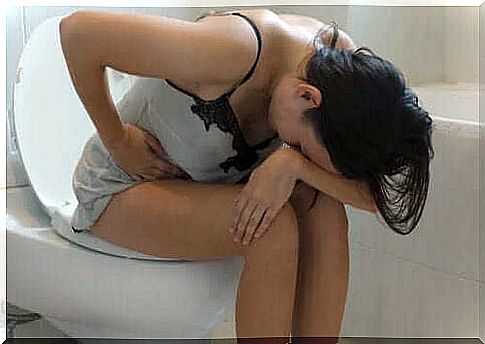
Another aspect that contributes to constipation during pregnancy is the pressure that the uterus puts on the intestines. It often happens in the latter part of pregnancy. The movement of food through the digestive tract becomes more complicated and slow.
In some cases, iron tablets, which doctors often prescribe for pregnant women, can also be the cause of constipation during pregnancy. Anemia is another common problem during pregnancy, as women have a greater need for blood and red blood cells to nourish their baby. When anemia occurs, it is important to have an extra shot of iron in the treatment.
If iron is to blame for the constipation, a doctor will look at the possible solutions. He or she will reduce the dosage or take other measures. If anemia is a problem, then it is best not to reduce iron intake yourself to avoid constipation. You should always talk to a doctor as there are other solutions available.
Consequences of constipation during pregnancy
As we have mentioned, constipation during pregnancy is a problem that you should not ignore. It is not only an unpleasant problem – constipation can lead to serious consequences for your health.
When constipation occurs, it requires more energy and effort to be able to defecate. As a consequence, pressure on the intestinal walls will be increased, which will prevent normal blood circulation. It will cause the blood vessels in that area to flush and lead to varicose veins and hemorrhoids, as well as other problems.
Sometimes constipation can be to blame for the formation of cysts and vaginal fungus during pregnancy. This is due to the increased bacterial accumulation in the intestines due to stagnant stools. This bacterium can pass on to the cervix and create infections.
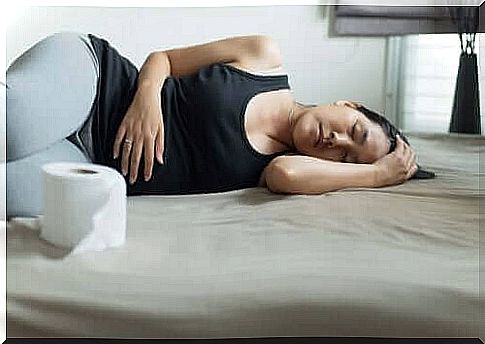
How to fight constipation during pregnancy?
As we have seen, constipation during pregnancy is the result of many processes that are out of our own hands. But there are effective things you can do to relieve constipation. One of them is regular exercise, while of course you adapt to your own options.
Changing your diet is another effective method that will alleviate constipation. If you experience this problem, be sure to consume foods that are rich in fiber. Some options you may find useful are:
- Fruit : Eg. oranges, kiwis and grapes.
- Vegetables : Spinach, lettuce, green beans or cabbage.
- All kinds of legumes.
At the same time, you should also increase your fluid intake. During pregnancy, the body needs more water. And as a result, the intestines absorb a greater amount of water. Therefore, the stool becomes hard and difficult to get rid of. To counteract this problem, drink a minimum of 2 liters of water a day.
Conclusion
Constipation during pregnancy is a common problem. Try to follow a special diet rich in fiber and make sure you stay physically active. If you still cannot get the problem under control, your doctor will be able to recommend some solutions.

